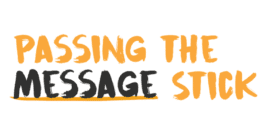The small chips in civil society

16 March 2021 at 8:20 am
Global and Australian humanitarian leaders say there is a growing trend of democratic governments muzzling civil society groups
A case in Italy against charity rescuers has prompted concerns of a global tightening on civil society.
Earlier this month, staff from Save the Children and Medecins Sans Frontieres (MSF), who had been accused of collaborating with people smugglers after saving thousands of refugees in the Mediterranean, were charged by Italian prosecutors.
Save the Children and MSF have both denied the accusations. Save the Children maintains that it has always acted in full compliance with international law and with the Italian Maritime Rescue Coordination Centre.
In recent years, the Italian government has launched dozens of investigations against charities, with the large majority of them dropped.
The news has sparked concerns among Australian and global humanitarian leaders, who say this is just one example of a growing number of cases around the world where governments have sought to muzzle civil society groups.
Andrew Firmin, the editor-in-chief of CIVICUS – a global alliance of civil society groups dedicated to strengthening civil society across the world – said the crackdown had come as many countries had embraced populist politics.
“In recent years civil society that helps migrants and refugees has been attacked by governments, not just in Italy but in France, the UK and USA, and in a swathe of East European countries, notably Hungary,” Firmin told Pro Bono News.
“For civil society organisations, there are examples of them ceasing operations because it becomes legally impossible to act, or self-censoring to avoid attacks.”
Australia is not immune
In the past few years, Australian charity and advocacy groups have faced their own tough battles with the government including crackdowns on charitable advocacy and accessing refugee camps.
And more recently, some in the sector described proposed regulations that would broaden the charities commissioner’s power to take enforcement action against charities even if they have not been charged with an offence, as reminiscent of Stalinist Russia.
Alice Drury, a senior lawyer at the Australian Human Rights Law Centre (AHRLC), told Pro Bono News that the proposed changes to the Australian Charities and Not-for-profit Commission’s powers in particular were “overbroad, punitive, and [would] silence advocacy by charities”.
“It could see the charities that Australians know and trust shut down by the regulator, just because they sent a tweet in support of the women’s march,” Drury said.
“It is vital that charities be able to speak out on issues of national importance. Sometimes our advocacy may make the government uncomfortable, but that’s part of living in an open democracy.”
Paul Ronalds, the CEO of Save the Children Australia, told Pro Bono News that these cumulative restrictions had created an “increasingly antagonistic” environment for charities like Save the Children Australia to be operating in.
“It is something that we are concerned about, but I think it’s a new normal. We have to be prepared to be able to operate effectively in that environment,” Ronalds said.
He said that charities needed to take a sophisticated approach to their advocacy by working alongside organisations that functioned in slightly different ways.
“For example, there are things that organisations such as Human Rights Watch and Amnesty can speak publicly on, that an operational organisation like Save the Children will be more cautious about,” he said.
As well as this, he said it was critical that organisations emphasised the important role of civil society to both the government and the public.
“It’s really important to emphasise the important role that civil society plays in democracies and keeping governments to account, and that if this role gets restricted, that undermines a well functioning democracy, [including] Australia,” he said.
“Because while some might say these changes are only minor, each one of these is a chip away at civil society.”







